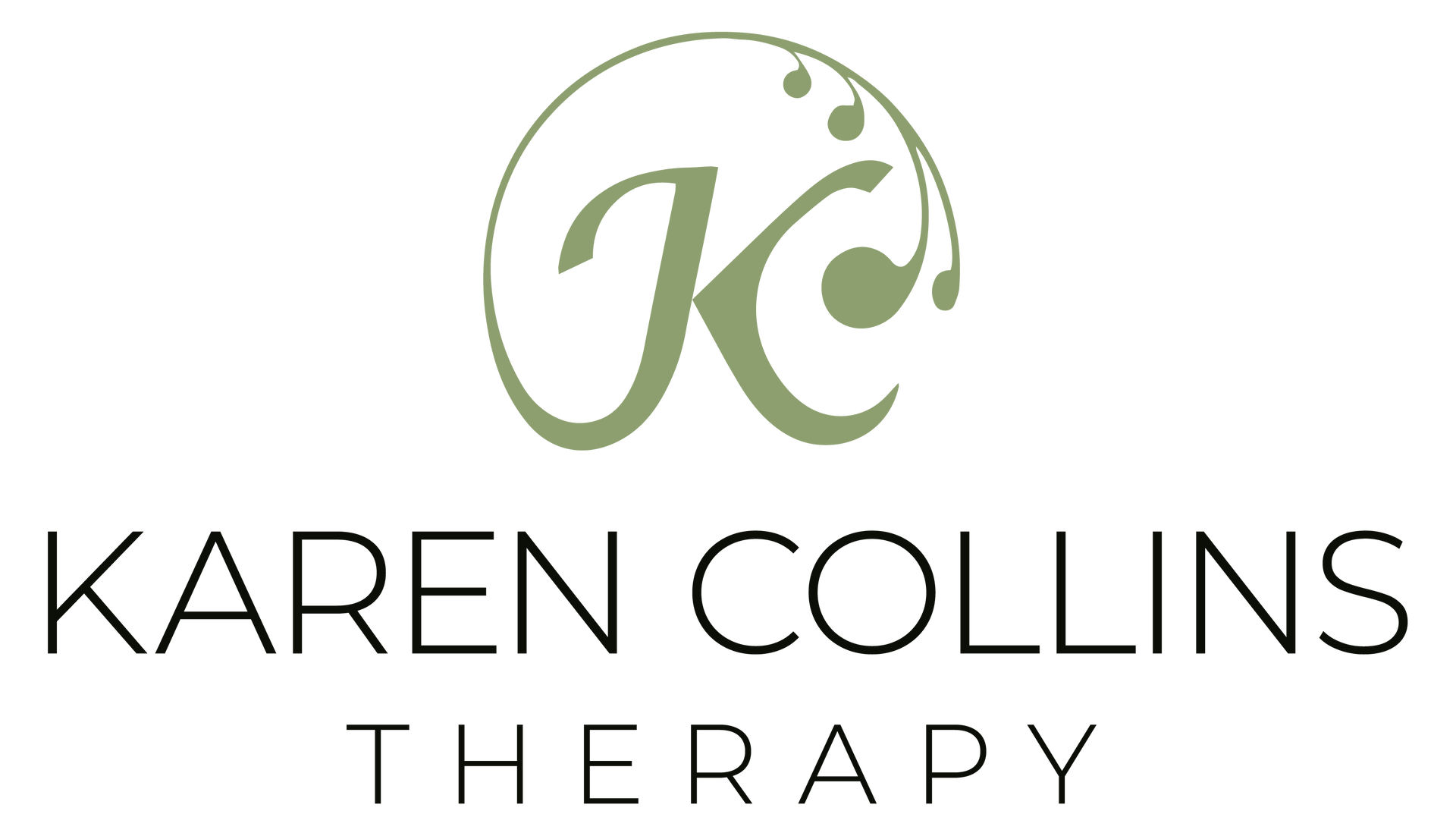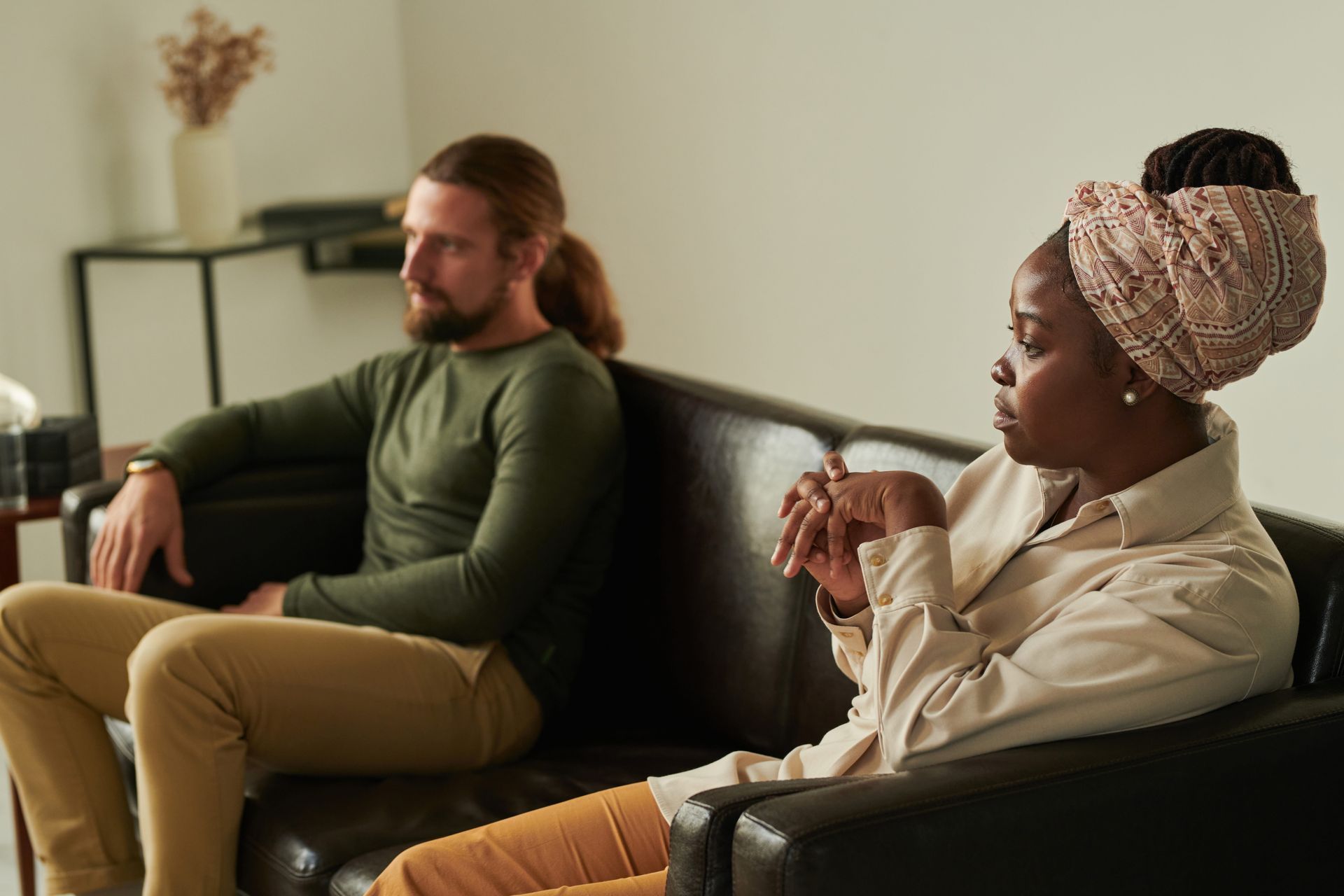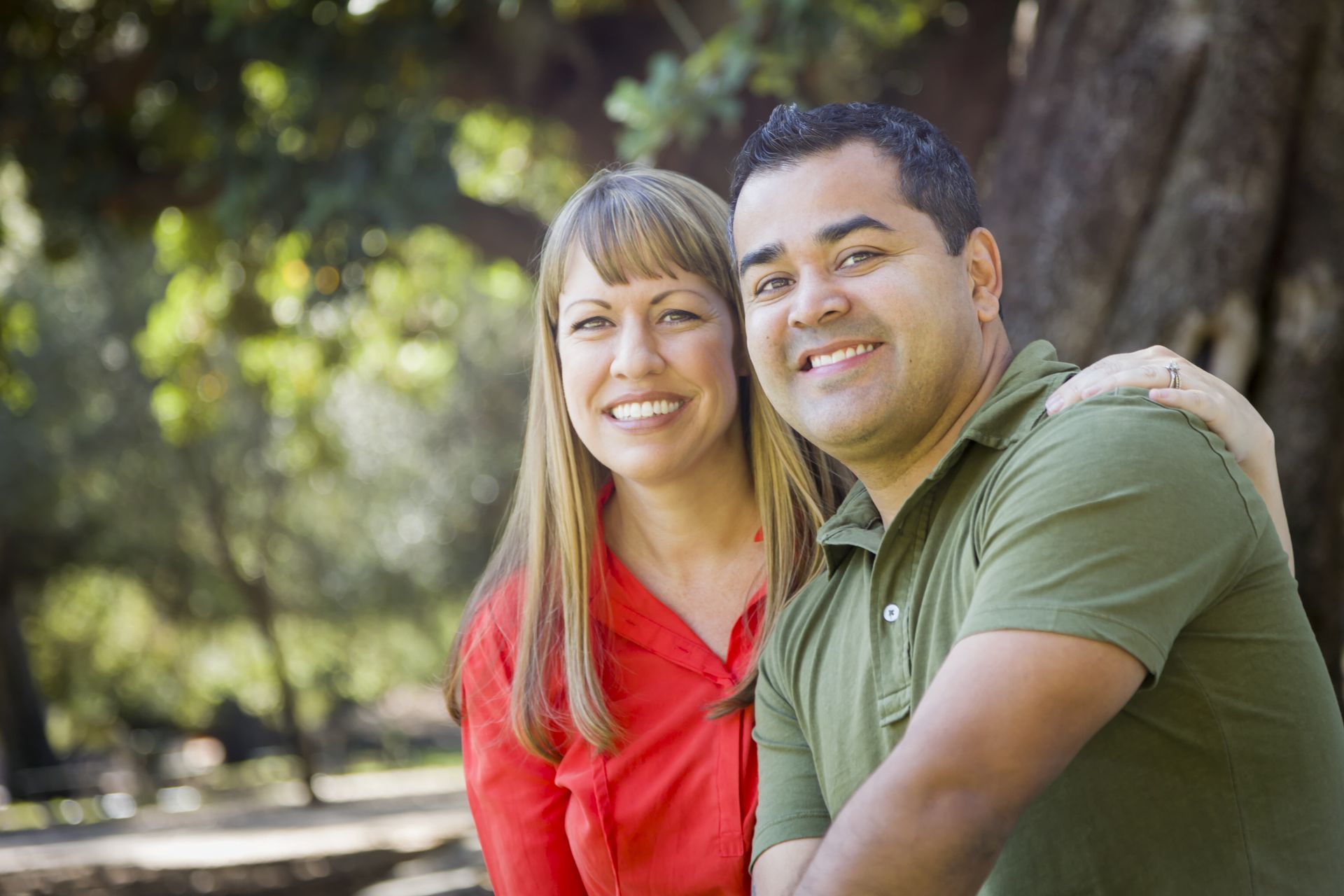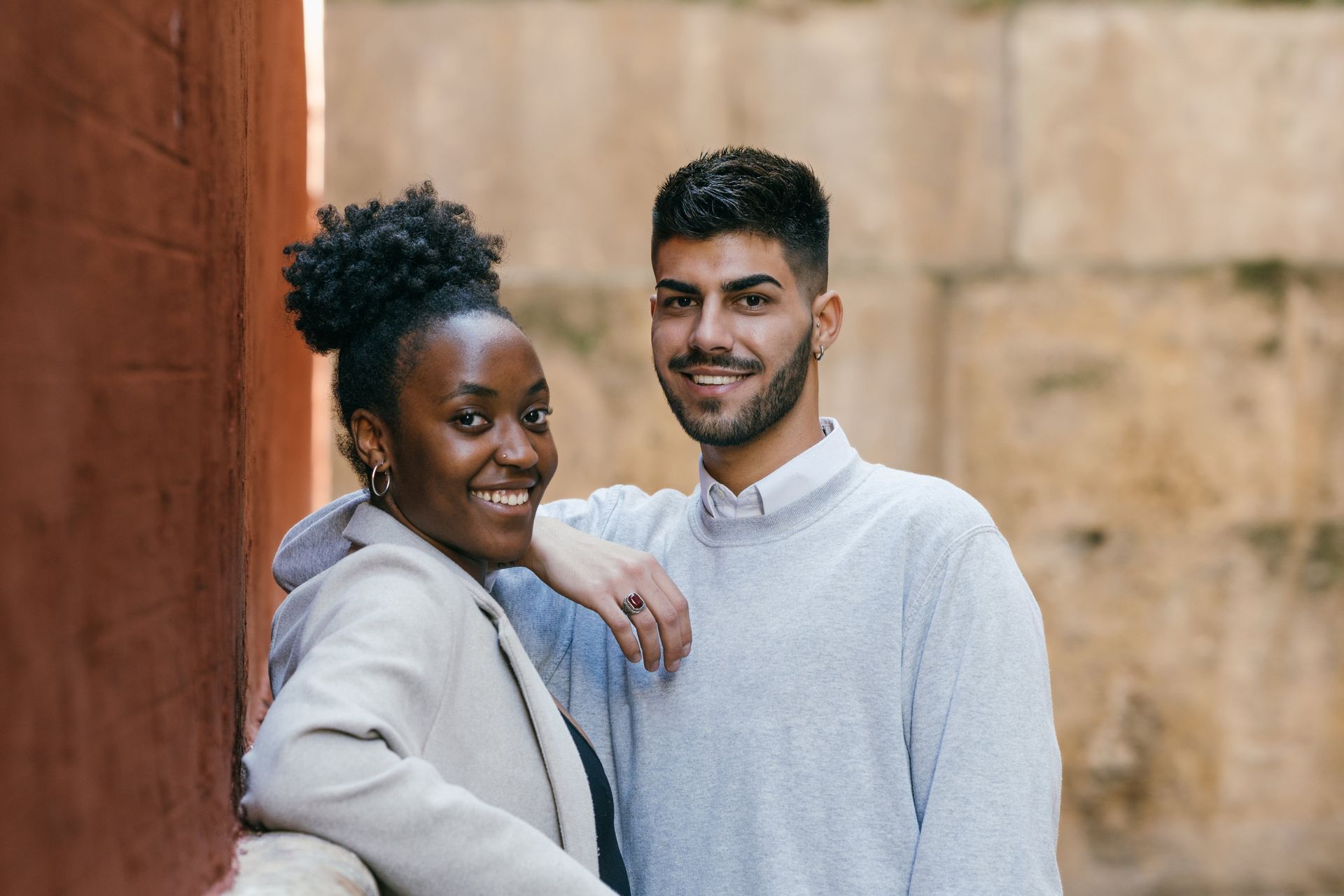Couples Counseling in Petaluma: Rebuild Your Relationship with Expert Care
When Love Feels Lost But Hope Remains
You remember when things were different. When you could talk without it turning into an argument. When you felt like a team instead of opponents. Maybe you're here because the silence has become louder than the fighting, or because you've tried everything you can think of and nothing seems to work.
If you're searching for couples counseling in Petaluma, you're not alone. Many couples in our community face the same struggles with communication, trust, and connection. The good news? With the right support and proven approaches, relationships can heal and grow stronger than before.
I'm Karen Collins, a licensed marriage and family therapist with over 20 years of experience helping couples in Petaluma rebuild their relationships. I understand how overwhelming it can feel when your partnership isn't working the way you both want it to. That's why I'm here to provide a safe, neutral space where both of you can be heard and understood.
What You'll Learn About Couples Counseling in Petaluma
- How couples therapy actually works and what to expect
- Signs that indicate couples counseling could help your relationship
- The EFT (Emotionally Focused Therapy) approach I use with couples
- What makes couples counseling in Petaluma unique and effective
- How to know if you've found the right therapist for your relationship
- Practical steps you can take today to improve communication
- Real answers to common concerns about starting couples therapy
- How to prepare for your first couples counseling session
What Is Couples Counseling and How Does It Work?
Couples counseling, also known as marriage therapy or relationship therapy, is a specialized form of psychotherapy designed to help partners improve their relationship. In my Petaluma practice, I work with couples to identify unhealthy patterns, improve communication, and rebuild emotional connection.
Unlike individual therapy, couples counseling focuses on the relationship itself as the "client." This means I don't take sides or try to determine who's "right" or "wrong." Instead, I help both partners understand how you've gotten stuck in negative cycles and guide you toward healthier ways of relating to each other.
The process typically involves weekly sessions where we explore the underlying emotions and needs that drive your conflicts. Many couples are surprised to discover that most arguments aren't really about the surface issue they're about deeper needs for connection, security, and understanding.
In my experience serving couples in Petaluma and Sonoma County, I've found that most relationship problems stem from patterns that developed over time, often without either partner realizing it. These patterns can be changed, but it takes intentional work and professional guidance.
Signs Your Relationship Could Benefit from Couples Counseling
Many couples wait too long to seek help, hoping things will improve on their own. While every relationship goes through difficult periods, certain signs indicate that professional support could make a significant difference:
Communication has become destructive or nonexistent. You find yourselves having the same arguments repeatedly, or you've stopped talking about important issues altogether. Perhaps conversations quickly escalate into shouting matches, or one or both of you shuts down completely.
Trust has been damaged. Whether due to infidelity, financial dishonesty, or broken promises, rebuilding trust requires specific skills and often professional guidance. Trust issues rarely resolve without addressing the underlying causes and learning new ways to rebuild safety in the relationship.
You feel more like roommates than romantic partners. The emotional and physical intimacy that once characterized your relationship has faded. You may still care about each other but feel disconnected and unsure how to bridge the gap.
Parenting disagreements are causing tension. Differences in parenting styles, discipline approaches, or concerns about children can create significant stress in a relationship. These disagreements often reflect deeper differences in values or communication styles.
Life transitions are straining your relationship. Major changes like career shifts, moves, health issues, or the arrival of children can challenge even strong relationships. Couples counseling can help you navigate these transitions together, rather than letting them drive you apart.
You're considering separation but aren't ready to give up. If you're questioning whether your relationship can survive, couples counseling can help you make that decision from a place of clarity rather than frustration or hurt.
The EFT Approach: How I Help Couples in Petaluma Reconnect
In my Petaluma practice, I primarily use principles from Emotionally Focused Therapy (EFT), an evidence-based approach that has helped countless couples rebuild their relationships. While I'm not formally certified in EFT, I've received training in this approach and incorporate its core principles into my work with couples. EFT is based on the understanding that we all have fundamental needs for security, connection, and love in our closest relationships.
When these needs aren't met, we develop protective strategies that often push our partner further away. For example, one partner might criticize or pursue when feeling disconnected, while the other withdraws or becomes defensive. These patterns create negative cycles that leave both people feeling frustrated and alone.
EFT helps couples recognize these patterns and understand the vulnerable emotions underneath protective behaviors. When you can share your deeper feelings and needs with your partner - and truly hear theirs - healing and reconnection become possible.
The three stages of EFT work together to transform relationships:
Stage 1: De-escalation - We identify the negative patterns keeping you stuck and begin to interrupt them. This creates space for new interactions and helps both partners feel safer in the relationship.
Stage 2: Restructuring - We access and express the underlying emotions and needs that drive your protective behaviors. This is where the real healing happens, as partners learn to be vulnerable with each other in new ways.
Stage 3: Integration - We consolidate the changes you've made and develop strategies for maintaining your new connection. You'll learn how to navigate future challenges while preserving the intimacy you've rebuilt.
Research from the International Centre for Excellence in EFT (ICEEFT) shows that EFT is effective for approximately 75% of couples, with improvements lasting long after therapy ends. Studies published by the American Association for Marriage and Family Therapy (AAMFT) consistently demonstrate EFT's effectiveness in creating lasting relationship change. What I love about this approach is that it doesn't just solve current problems it gives couples tools to handle whatever challenges life brings.
What Makes Couples Counseling in Petaluma Unique
Choosing couples counseling in Petaluma offers several advantages for relationships. Our community values connection, authenticity, and personal growth - qualities that align beautifully with the therapeutic process. Many couples find that working with a local therapist who understands the unique aspects of life in Sonoma County enhances their experience.
Personalized attention in a smaller community. Unlike large metropolitan areas where therapists may have extensive waitlists, couples counseling in Petaluma often means more personalized attention and shorter wait times for appointments. This can be crucial when you're dealing with relationship crisis and need support quickly.
Understanding of local stressors and lifestyle factors. Living in Petaluma and Sonoma County comes with specific benefits and challenges - from wine industry work patterns to commuting to the Bay Area. I understand how these factors can impact relationships and can help you navigate them together.
Integration with community resources. When appropriate, I can connect couples with other local resources that support relationship health, from communication workshops to recreational activities that strengthen partnerships.
Consistent, ongoing support. Building new relationship patterns takes time and practice. Having a consistent therapist in your community means you can continue working together as long as needed, whether that's short-term problem-solving or longer-term relationship development.
Common Concerns About Starting Couples Counseling
It's natural to have questions and concerns about beginning couples therapy. In my years of practice in Petaluma, I've heard many of these worries, and I want to address them directly:
"What if our problems are too big to fix?" Many couples come to therapy feeling hopeless about their relationship. While I can't guarantee that every relationship can be saved, I can tell you that I've seen couples overcome seemingly impossible challenges when both partners are willing to do the work.
"What if my partner doesn't want to participate?" It's common for one partner to be more interested in counseling initially. While couples therapy works best when both people are engaged, I can often help the reluctant partner see the value once they experience a safe, non-judgmental environment.
"What if we discover we're not compatible?" Sometimes couples therapy does help partners realize they're better off apart. However, the skills you learn and healing you experience will benefit you regardless of whether you stay together. Many couples find that therapy helps them separate more amicably if that becomes necessary.
"What if it's too expensive?" I understand that cost is a real concern for many couples. I accept various insurance plans and can discuss payment options. Consider that relationship problems often become more expensive to address over time, both emotionally and financially.
"What if it takes too long?" Every couple is different, but many begin seeing improvements within the first few sessions. The goal isn't to stay in therapy forever, it's to give you tools and insights you can use on your own.
Communication Skills That Transform Relationships
One of the primary focuses of couples counseling in Petaluma is developing healthy communication patterns. Most couples never learned effective relationship communication skills, so conflict becomes destructive rather than productive.
Listen to understand, not to respond. This means truly hearing your partner's perspective without immediately formulating your rebuttal. Practice reflecting back what you've heard before sharing your own viewpoint.
Use "I" statements to express feelings and needs. Instead of saying "You never help with housework," try "I feel overwhelmed when I handle most of the household tasks alone, and I need us to share this responsibility more equally."
Address one issue at a time. Avoid bringing up past grievances or multiple problems during a single conversation. Focus on the specific situation at hand and work through it completely before moving to other concerns.
Take breaks when emotions escalate. If a conversation becomes too heated, it's okay to pause and return to it when you're both calmer. Agree on a specific time to continue the discussion so important issues don't get forgotten.
Express appreciation regularly. Research shows that healthy relationships have a ratio of at least five positive interactions for every negative one. Make an effort to notice and acknowledge what your partner does well.
Ask for what you need directly. Many relationship problems stem from unspoken expectations. Practice expressing your needs clearly and specifically, rather than hoping your partner will figure it out.
Research from the Gottman Institute shows that healthy relationships maintain a ratio of at least five positive interactions for every negative one. Their extensive studies on relationship dynamics provide valuable insights into what makes couples thrive long-term.
Solution-Focused Approaches for Immediate Relief
While deeper emotional work takes time, I also incorporate solution-focused techniques that can provide immediate relief for couples in distress. These practical strategies can help you start feeling more connected right away:
Create relationship rituals. Establish small, consistent ways to connect with each other daily. This might be morning coffee together, evening walks, or checking in about each other's day without distractions.
Implement the 24-hour rule. When you're upset about something your partner did, wait 24 hours before addressing it. This prevents reactive responses and allows you to approach the issue more thoughtfully.
Practice the pause technique. When you feel triggered during a conversation, take three deep breaths before responding. This simple practice can prevent many arguments from escalating.
Schedule weekly relationship meetings. Set aside time each week to discuss practical matters, express appreciation, and address any concerns. Having a designated time for these conversations prevents them from happening at stressful moments.
Focus on solutions rather than problems. When discussing issues, spend equal time talking about what you want to see happen as you do describing what's wrong.
Attachment-Based Healing for Deeper Connection
My approach to couples counseling in Petaluma is heavily influenced by attachment theory, which helps us understand how early relationships shape our expectations and behaviors in romantic partnerships. Many relationship problems stem from attachment injuries or insecure attachment patterns developed in childhood.
Understanding your attachment style. Some people feel most secure when they're close to their partner, while others need more independence. Neither style is wrong, but understanding these differences helps couples find balance.
Healing attachment injuries. Sometimes specific incidents damage our sense of safety in the relationship. These attachment injuries need special attention to heal properly and may involve processing past hurts and learning to trust again.
Creating secure attachment. The goal of attachment-based couples work is to help partners become a secure base for each other - a safe haven during difficult times and a source of encouragement for individual growth.
Recognizing protest behaviors. When we don't feel securely connected, we often engage in protest behaviors like criticism, withdrawal, or emotional escalation. Learning to recognize these patterns helps couples address underlying needs rather than getting stuck in surface conflicts.
Trauma-Informed Couples Counseling
Many individuals bring trauma from past relationships or life experiences into their current partnership. Trauma can significantly impact how we relate to others, often creating patterns of fear, hypervigilance, or emotional numbing that interfere with intimacy.
In my Petaluma practice, I use trauma-informed approaches that recognize how past experiences may be affecting your relationship. This doesn't mean we focus extensively on past trauma, but rather that I understand how it might be influencing current patterns and can help you work through these impacts together.
Common trauma responses in relationships include:
- Difficulty trusting or being vulnerable
- Emotional flashbacks during conflicts
- Hypervigilance about partner's moods or behaviors
- Tendency to withdraw or shut down during stress
- Fear of abandonment or rejection
Understanding these responses helps couples develop compassion for each other and find ways to create safety in the relationship. Often, what looks like relationship problems are actually trauma responses that can be healed with proper support.
What to Expect in Your First Couples Counseling Session
Many couples feel nervous about their first session, unsure of what to expect or how to prepare. Here's what typically happens when you begin couples counseling in my Petaluma office:
Initial assessment and goal setting. We'll start by discussing what brought you to therapy and what you hope to accomplish. I'll ask about your relationship history, current challenges, and previous attempts to resolve issues.
Understanding your unique dynamic. Every couple is different, and I'll spend time learning about your specific patterns, strengths, and areas for growth. This helps me tailor our work to your particular needs and goals.
Establishing safety and ground rules. Creating a safe environment is essential for productive couples work. We'll discuss guidelines for our sessions and how to communicate respectfully, even when discussing difficult topics.
Beginning to interrupt negative patterns. Even in the first session, we can often identify unhealthy patterns and start experimenting with new responses. Small changes can create immediate relief and hope for bigger transformations.
Developing a treatment plan. Based on our initial conversation, I'll share my assessment of your relationship and recommend a treatment approach. This plan will evolve as we work together and learn more about what helps your relationship thrive.
Homework and practice. Change happens between sessions, not just during them. I'll often suggest specific practices or exercises you can try at home to strengthen new patterns we're developing.
Individual Work Within Couples Therapy
Sometimes relationship healing requires individual work alongside couples sessions. This might involve addressing personal trauma, developing emotional regulation skills, or working through individual mental health concerns that impact the relationship.
I can help you determine when individual therapy might be beneficial and can coordinate with other therapists if needed. The goal is always to support both your individual well-being and your relationship health.
Common individual issues that benefit from separate attention:
- Depression or anxiety that interferes with relationship functioning
- Addiction or substance abuse concerns
- Trauma that requires specialized treatment
- Personal boundaries and self-esteem issues
- Career or life transition stress
Working on yourself isn't selfish, it's one of the best gifts you can give your relationship. When both partners are committed to their own growth, the relationship has the best chance of thriving.
Specialized Support for Specific Relationship Challenges
While general couples counseling addresses many common issues, some situations require specialized approaches. In my Petaluma practice, I have experience with several specific challenges:
Infidelity recovery. Rebuilding trust after an affair requires specific steps and careful attention to both partners' needs. The process is difficult but possible with proper support and commitment from both people.
Blended family challenges. Couples forming blended families face unique stressors around parenting, loyalty conflicts, and family dynamics. I can help you navigate these complexities while strengthening your partnership.
Communication differences. Some couples struggle because they have very different communication styles or conflict resolution approaches. Learning to bridge these differences can dramatically improve relationship satisfaction.
Intimacy and sexuality concerns. Physical and emotional intimacy often suffer when relationships are struggling. While I'm not a sex therapist, I can help couples address emotional barriers to intimacy and refer to specialists when appropriate.
Life transition stress. Major life changes like career shifts, moves, health issues, or the arrival of children can strain even strong relationships. Couples counseling can help you navigate these transitions as a team.
Building Long-Term Relationship Success
The goal of couples counseling isn't just to solve current problems, it's to give you tools and insights you can use throughout your relationship. Successful couples continue growing and adapting together long after therapy ends.
Ongoing communication skills. The communication tools you learn in therapy become part of how you relate to each other daily. Regular practice helps these skills become natural rather than forced.
Conflict resolution strategies. Healthy couples don't avoid conflict, they handle it constructively. Learning to work through disagreements respectfully actually strengthens relationships over time.
Regular relationship maintenance. Just like physical health, relationship health requires ongoing attention. Successful couples develop habits and rituals that keep their connection strong.
Individual growth within partnership. Healthy relationships support both partners' individual development while maintaining strong connection. This balance is crucial for long-term satisfaction.
Flexibility and adaptation. Life circumstances change, and successful couples learn to adapt their relationship patterns accordingly while maintaining their core connection.
Frequently Asked Questions About Couples Counseling in Petaluma
How long does couples counseling typically take? Every couple is different, but many begin seeing improvements within 4-6 sessions. Some couples benefit from short-term problem-solving (8-12 sessions), while others prefer longer-term work focused on deeper relationship development. We'll regularly assess progress and adjust our plan as needed.
Do both partners need to attend every session? Couples therapy works best when both partners participate regularly. However, I understand that scheduling can be challenging, and occasional individual sessions may be helpful for specific issues.
What if we're not married? Do you work with dating couples? Absolutely. I work with couples at all stages of relationships, including dating couples, engaged couples, and married couples. The principles of healthy communication and connection apply regardless of your legal status.
Is couples counseling covered by insurance? Many insurance plans cover couples therapy when provided by a licensed marriage and family therapist. I can help you understand your benefits and work with your insurance provider to maximize coverage.
What's the difference between couples counseling and marriage counseling? These terms are often used interchangeably. Both focus on improving relationship dynamics, communication, and connection between partners. The approach and goals are essentially the same.
How do I know if you're the right therapist for us? The therapeutic relationship is crucial for successful outcomes. During our initial consultation, pay attention to whether you both feel heard, understood, and comfortable. A good couples therapist will feel neutral and supportive to both partners.
What if my partner is resistant to therapy? It's common for one partner to be more hesitant about counseling. Often, reluctant partners become more engaged once they experience a safe, non-judgmental environment. I can work with you individually initially if needed to help address these concerns.
Can couples counseling prevent divorce? While I can't guarantee that every relationship can be saved, many couples who come to therapy feeling hopeless do rebuild strong, satisfying partnerships. According to research published by the American Association for Marriage and Family Therapy (AAMFT), couples therapy has a success rate of approximately 70-80% when both partners actively participate. Even when couples decide to separate, therapy often helps them do so more amicably and with better outcomes for children involved.
How do you handle it if we want different things from therapy? It's normal for partners to have different goals or perspectives on what needs to change. Part of my role is helping you understand each other's needs and find common ground for moving forward together.
What happens if we have a crisis between sessions? I provide guidance on how to handle difficult situations between sessions and am available for brief phone consultations when needed. For true emergencies, I'll help connect you with appropriate crisis resources.
Taking the Next Step: Starting Couples Counseling in Petaluma
If you've read this far, you're likely ready to invest in your relationship's future. Taking the step to begin couples counseling requires courage, but it's one of the most valuable gifts you can give your partnership.
Here's how to get started:
Schedule a consultation. Contact my office to set up an initial appointment. During this call, we can discuss your specific concerns and determine if couples counseling is the right fit for your situation.
Prepare for your first session. Think about what you hope to accomplish and what challenges you'd like to address. Both partners should come ready to participate openly and honestly.
Commit to the process. Real change takes time and effort from both partners. While you may see some improvements quickly, lasting transformation requires consistent work both in sessions and at home.
Stay open to new perspectives. Couples therapy often involves looking at familiar patterns in new ways. Staying curious and open to different viewpoints helps maximize your progress.
Remember your love. Even when relationships are struggling, the love that brought you together is still there. Couples counseling helps remove the barriers that have been blocking that love and connection.
Your Relationship Deserves Expert Care
You don't have to continue struggling with communication problems, trust issues, or emotional distance. Couples counseling in Petaluma can help you rebuild the connection you once had and create an even stronger foundation for your future together.
I've spent over 20 years helping couples in Petaluma and Sonoma County transform their relationships. Using evidence-based approaches like EFT, solution-focused therapy, and attachment-based healing, I provide the expert guidance and support you need to create lasting change. My training is recognized by leading professional organizations including theAmerican Association for Marriage and Family Therapy (AAMFT) and follows evidence-based practices validated by institutions like theGottman Institute.
Your relationship brought you joy once, and it can again. Whether you're dealing with recent challenges or long-standing patterns, there's hope for renewal and growth. The couples who make the most progress are those who decide to invest in professional support before problems become overwhelming.
Ready to rebuild your relationship? Contact Karen Collins Therapy today to schedule your couples counseling consultation. Together, we'll create a path toward better communication, deeper trust, and the loving connection you both deserve.
Karen Collins, LMFT, is a licensed marriage and family therapist with over 20 years of experience providing couples counseling in Petaluma, California. She specializes in EFT (Emotionally Focused Therapy), solution-focused approaches, and attachment-based healing for couples and individuals.












